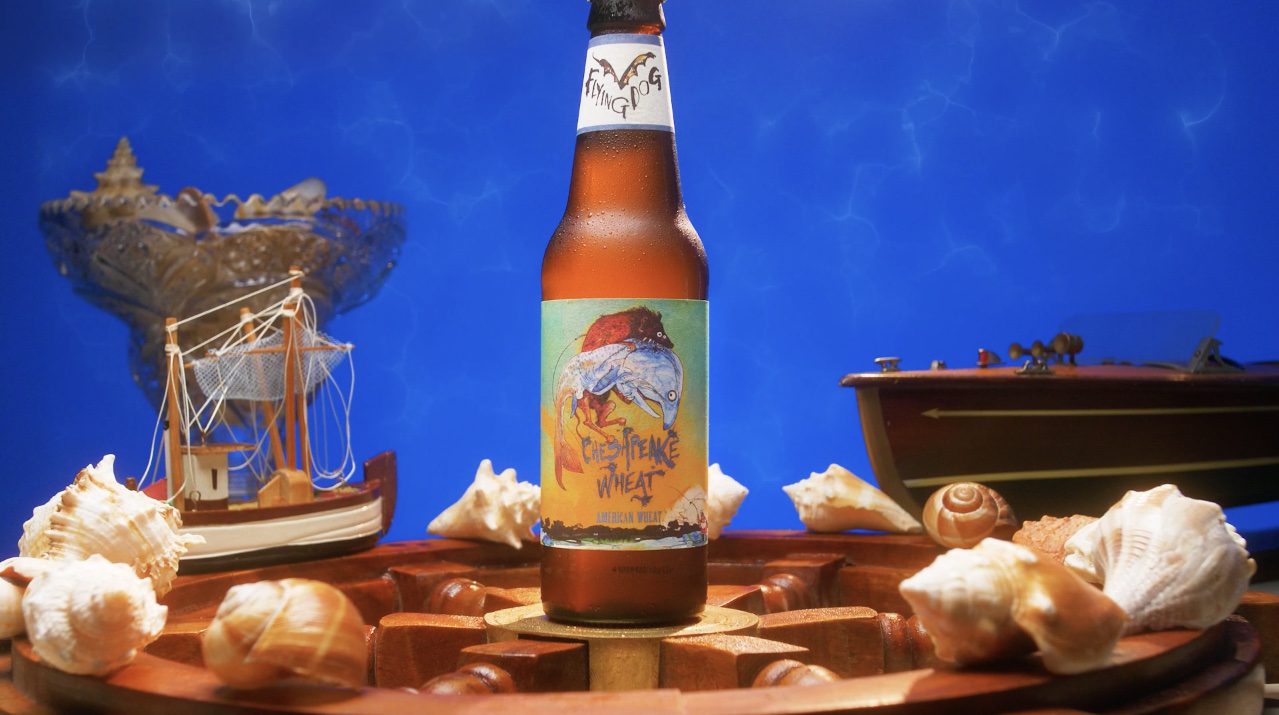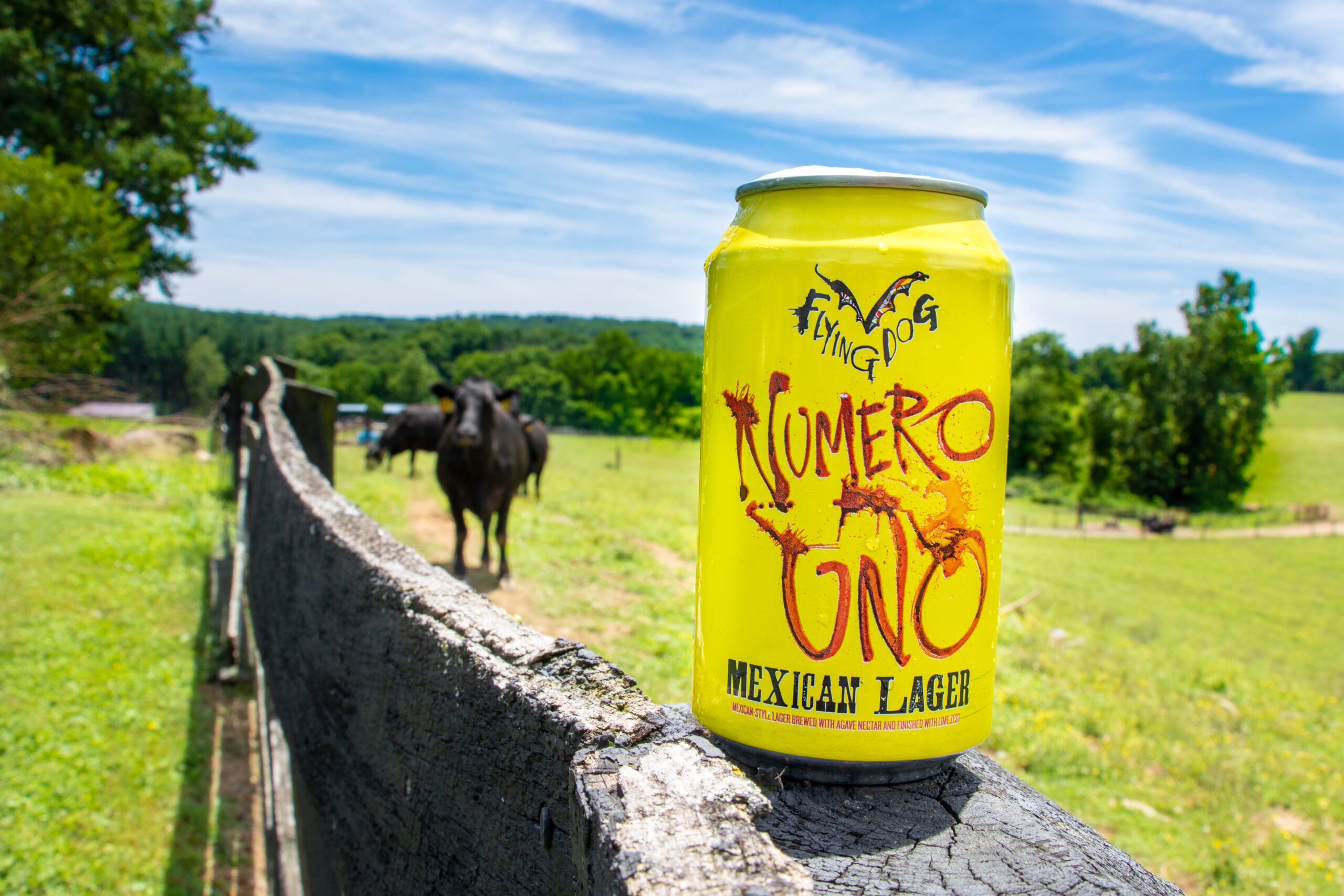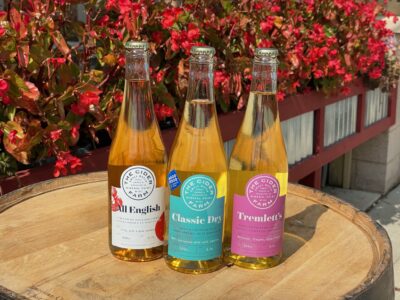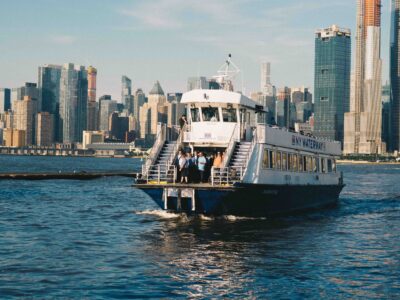The world of craft beer is filled with plenty of figures who use their company as a platform to promote something near and dear to them. Beyond just sustainability, some breweries have made it a goal to stand up for artistic expression. Flying Dog Brewery of Frederick, MD, prides itself on being a rebel, but the company has also contributed to ocean conservation and wildlife habitat protection.
Founded in 1990 by physicist George Stranahan and his business partner, Richard McIntyre, Flying Dog started as a brewpub in Woody Creek, CO, before relocating to Maryland. It was popular among locals in Woody Creek when a minor celebrity endorsed the business — journalist Hunter S. Thompson. Thompson pushed Stranahan to hire British illustrator Ralph Steadman to design the beer labels. The artwork became the brewery’s iconic aesthetic for years, and Steadman would even come up with its official mantra. It would be this artwork that set Flying Dog apart from the rest of other craft breweries, and it was something that made the founders proud. They have been vocal about artistic expression with the labels.
Flying Dog has been involved in several sustainability and conservation initiatives beginning with a survey by George Washington University in 2012. The survey focused on the energy use for beer brewing and evaluated changes that could be made, like switching to solar or wind power. Then in 2015, they teamed up with the University of Maryland for locally-grown hops for the Field Notes beer. The brewery determined they were as tasty as Pacific Northwest hops, and this collaboration has continued for about seven years. Although, this is only the tip of Flying Dog’s sustainability iceberg.
The brewery’s popularity grew thanks to the efforts of the Oyster Recovery Partnership. In 2014, Flying Dog partnered with the Annapolis-based nonprofit to help raise funds for oyster replanting projects in the Chesapeake Bay area.
Using its Pearl Necklace Oyster Stout beer to drive donations, one purchased bottle equaled about 10 new oysters planted.
“Working with the Oyster Recovery Partnership, we were able to develop a really simple equation: Drinking Pearl Necklace Oyster Stout and eating farm-raised oysters directly enables the Oyster Recovery Partnership to replant oysters back in the bay,” said Holly Manthei, senior director of Flying Dog’s marketing. This partnership has been around for about 10 years, and efforts will continue in 2021. Pearl Necklace has since been discontinued, but fear not. Flying Dog’s Chesapeake Wheat Ale sales are powering the next wave of oyster replanting. Each pack of Chesapeake Wheat Ale purchased creates a similar impact. Oysters are essential to replant since they are natural ocean filters, and a single oyster can filter up to 50 gallons of water.

Another conservation effort involving Flying Dog is the True Blue campaign. The collaboration came about after learning that some Maryland restaurants weren’t serving local crabs. Cooperating with the makers of Old Bay spice in conjunction with the seasonal Dead Rise Old Bay Summer Ale, True Blue is a disclosure campaign. It ensures diners know they are eating crab from the bay and supporting local fishermen. The collaboration also reduces the need to transport frozen crab from other states, lowering emissions from travel. All proceeds of the Dead Rise ale will support the True Blue campaign.
On top of these beer-related conservation efforts, Flying Dog ran a campaign to cut down on fast fashion back in 2016. The promptly titled Slow Fashion campaign partnered with Fred & Co Clothing to encourage consumers to buy American-made clothing like shirts, hoodies, hats, and other fashion items on the brewery’s website. The goal was to promote purchasing quality products rather than cheap, unsustainable fast-fashion clothing. Though this campaign isn’t ongoing, its message can’t be stressed enough.
Flying Dog’s role in keeping ocean and marine life in Maryland bountiful and its commitment to sustainability has made them a well-respected brewer. Their artistic and eccentric labels have made waves with drinkers everywhere. We can only anticipate what comes next from these “bad boys” of craft beer.





